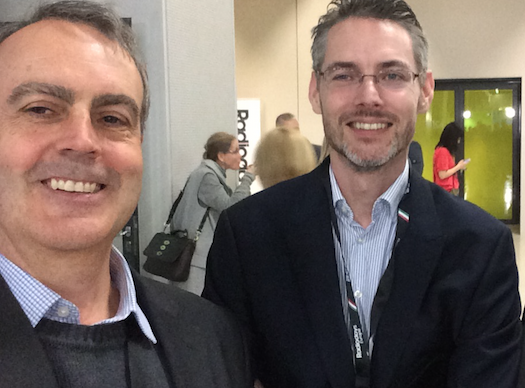Radio Tomorrow with James Cridland
So, the number one format for radio in the US, according to Nielsen, is country.
In the UK, we’ve not had very many country radio stations. In fact, it’s a bit worse than “not very many”. I only know of one: Chris Country, an online-only radio station, which supplies programmes to stations up and down the country.
Recently, however, the number of country stations doubled: with the temporary launch of “BBC Radio 2 Country”, a national country station from the makers of BBC Radio 2, Europe’s most listened-to radio station. Coinciding with a big country show in London, it broadcast for a weekend on the national airwaves, and then closed down again.
These pop-up stations are made possible because new platforms, like DAB Digital Radio, HD Radio and the internet, all offer the opportunity to dynamically add and remove stations. More and more countries are therefore trying out pop-up services.
In South Africa, the Oscar Pistorious trial last year was seized by broadcasters Primedia as an opportunity: launching Oscar Extra, an online-only service within their radio station apps. I saw their operation while it was still on: it mainly consisted of a live feed from the courtroom, a board operator, and a great radio presenter who did callins and commentary. Simple and straightforward, it was incredibly popular.
In Australia, the Australian ABC regularly broadcast themed stations on DAB+ and the internet. Stations have included everything from weekend specials about The Beatles (using archive material and fresh content), week-long coverage for Chinese New Year, a three day-long station playing nothing but vinyl songs to celebrate – or mourn – the anniversary of the CD, or rebroadcasts of other stations at time of emergency. Commercial broadcasters use them regularly too.
The UK? We’ve used them for christmas format stations – a way to keep current listeners to the main station, while offering a non-stop christmas service on DAB and online. We’ve had short-lived stations for specific events, like the Olympics; and we even have daily pop-up stations for Parliamentary coverage that only last for half an hour.
The technology we have available has made this easier than ever before. But why is a pop-up station a good thing?
It helps retain listeners. Why alienate your listeners by suspending regular programming to rebroadcast court proceedings, local government meetings or live feeds from concerts when you can offer that detail on a separate feed? If consistency is important to a station brand – and it ought to be – then pop-up services make it easier to offer that consistency and build listener loyalty.
It helps attract new revenue. A client can sponsor an entire pop-up station. Typically they won’t ever appear in ratings books, so you can sell the sizzle of a client owning an entire station, not the mechanics of ratings points. Or, you can carry the same spots on the main and pop-up station, selling it as a network. If it’s an online station, it drives users to install your apps, too.
And it helps your staff retention and development. Pop-up stations give your team somewhere to try new things and assume new responsibilities. Giving a producer or a researcher a big project like this gives them the opportunity to shine and learn new skills, while having the safety net that it isn’t the main station and if they mess up it’s not as crucial. And it helps you as a station manager experiment with new formats, new clocks, and new ways of working.
In terms of country radio in the UK, incidentally, you can expect more. Downtown Radio in Northern Ireland have just announced they’re launching a full-time service on DAB. And Chris Country is part of a bid to get a national DAB frequency. After a few false starts, country may yet invade this country.

